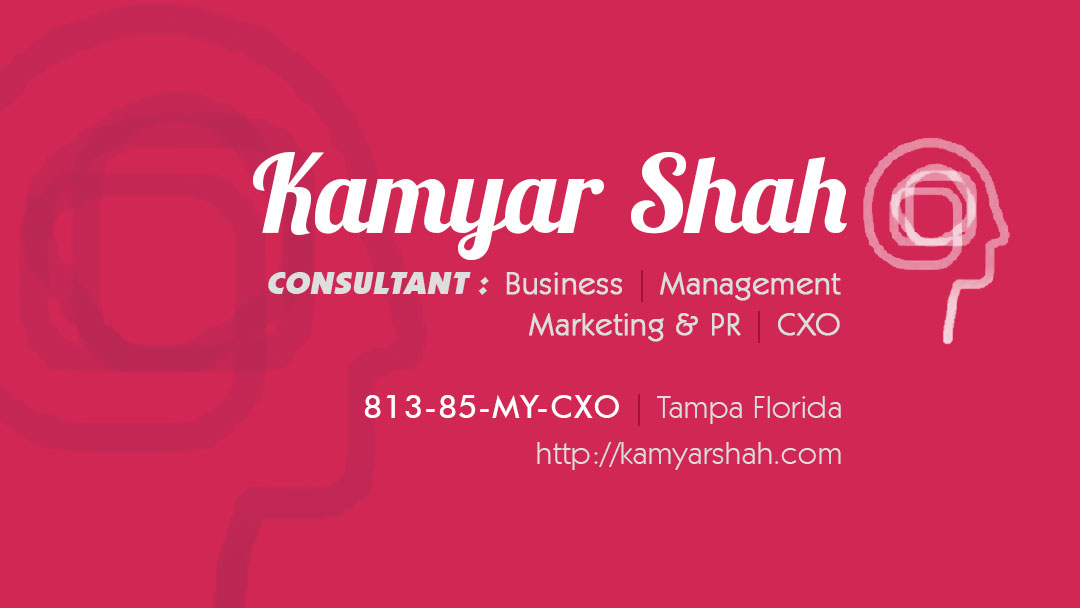Executive Coaching
Professional development partnership helping leaders enhance their performance, decision-making, and leadership capabilities through personalized guidance.
Executive coaching provides a confidential and structured partnership designed to elevate leadership effectiveness in today's complex business environment. Through focused one-on-one sessions, leaders gain valuable insights into their management style, communication patterns, and strategic thinking capabilities.
Performance Optimization
Develop strategies to enhance leadership effectiveness and achieve breakthrough results in both personal and organizational performance.
Strategic Development
Gain clarity on complex business challenges and create actionable plans to achieve strategic objectives.
Leadership Growth
Build essential leadership capabilities including emotional intelligence, strategic thinking, and effective team management.
Through a combination of assessment, action planning, and accountability, executive coaching creates lasting behavioral changes that drive meaningful results. This systematic approach ensures leaders not only grow personally but also create positive ripple effects throughout their organizations.
Kamyar Shah's Executive Coaching
Are you ready to elevate your leadership skills and drive your organization to new heights? Kamyar Shah, with over 25 years of experience in fractional operations and marketing, offers tailored executive coaching services designed to enhance your leadership capabilities and achieve your business goals. Here’s how Kamyar Shah can help:
- Comprehensive Leadership Development Kamyar Shah provides a range of training programs for leadership development, including workshops, mentorship, and action learning projects. These programs are tailored to enhance critical leadership skills such as communication, strategic thinking, and decision-making, ensuring you are well-equipped to drive growth and inspire your team [1].
- Personalized Coaching and Mentoring Through personalized coaching and mentoring, Kamyar Shah helps leaders unlock their full potential. By focusing on personal growth, change management, and cultural alignment, his coaching services empower leaders to navigate complexities and foster innovation within their organizations [2].
- Enhancing Leadership Effectiveness Kamyar Shah’s executive coaching emphasizes the importance of effective communication, transformational leadership, and fostering a positive work environment. These strategies are critical for keeping employees engaged and motivated, ultimately leading to improved employee retention and organizational success [3][4].
- Strategic Transformation and Succession Planning Kamyar Shah assists in strategic transformation and succession planning, ensuring that your leadership team is prepared for future challenges. His coaching services provide tailored feedback and strategies to enhance leadership effectiveness and ensure a smooth transition during periods of change [2].
- Problem-Solving and Process Optimization Leverage Kamyar Shah’s expertise in problem-solving and process optimization to address key challenges within your organization. His coaching helps leaders develop the skills needed to identify and resolve issues proactively, fostering a culture of continuous improvement [5].
- Building a Supportive Workplace Culture Kamyar Shah’s coaching services focus on building a supportive workplace culture through transparent communication and strong leadership. By fostering a positive work environment, leaders can enhance team dynamics and drive organizational success [4].
Don’t wait to unlock your leadership potential. Connect with Kamyar Shah today and discover how his expert executive coaching services can transform your leadership skills and drive your organization to new heights. With his tailored approach, you can achieve greater efficiency, scalability, and sustainable growth.
General Overview
- What is executive coaching?
Executive coaching is a personalized development process where a coach works with leaders (e.g., CEOs, managers) to enhance their leadership skills, overcome challenges, and achieve professional goals.
- How does executive coaching differ from mentoring?
Coaching focuses on unlocking a leader’s potential through structured questioning and action plans, while mentoring involves sharing advice based on the mentor’s experience.
- Who typically hires an executive coach?
Senior leaders, high-potential employees, or organizations investing in leadership development.
- What qualifications do executive coaches have?
Certification (e.g., ICF, EMCC), experience in leadership roles, and training in psychology or organizational behavior.
- How long does an engagement last?
6–12 months, with sessions held biweekly or monthly.
- What are common coaching goals?
Improving communication, decision-making, emotional intelligence, or navigating organizational change.
- Is coaching confidential?
Yes, unless otherwise agreed (e.g., progress updates for sponsors).
- Can coaching address workplace conflicts?
Yes. Coaches help leaders resolve conflicts by improving self-awareness and communication strategies.
- What methodologies do coaches use?
GROW model, 360-degree feedback, strengths-based approaches, and behavioral assessments (e.g., DISC, Hogan).
- Do coaches work with teams or only individuals?
Both. Team coaching focuses on collaboration, while individual coaching targets personal leadership growth.
Benefits & Value
- Why invest in executive coaching?
It drives leadership effectiveness, employee retention, and organizational performance.
- How does coaching improve leadership skills?
By identifying blind spots, refining communication, and building emotional resilience.
- Can coaching help with career transitions?
Yes. Coaches assist with onboarding into new roles, retirement planning, or shifting industries.
- Does coaching boost ROI for organizations?
Yes. Companies see 7x ROI through improved productivity, retention, and decision-making.
- How does coaching impact company culture?
Leaders model behaviors that foster trust, accountability, and innovation.
- Can coaching reduce burnout?
Yes. Coaches help leaders set boundaries, delegate, and manage stress.
- Is coaching effective for underrepresented leaders?
Yes. It helps navigate biases, build executive presence, and secure promotions.
- How does coaching support DEI initiatives?
By equipping leaders to foster inclusive teams and address systemic barriers.
- Can remote leaders benefit from coaching?
Absolutely. Virtual coaching is common and effective for distributed teams.
- Does coaching work for introverted leaders?
Yes. Coaches tailor strategies to leverage introverted strengths (e.g., active listening).
Process & Methodology
- What happens in a typical coaching session?
Goal-setting, reflective questioning, action planning, and accountability checks.
- How are coaching goals established?
Through intake interviews, assessments, and alignment with organizational objectives.
- What tools do coaches use?
360-degree feedback, personality assessments, and competency frameworks.
- How is progress measured?
Via pre/post assessments, stakeholder feedback, and achievement of defined goals.
- What is the GROW model?
A framework: Goal, Reality, Options, Will. It structures coaching conversations.
- Do coaches give direct advice?
Rarely. They ask questions to help clients discover solutions independently.
- Can coaching address imposter syndrome?
Yes. Coaches reframe self-doubt and build confidence through evidence-based strategies.
- How do coaches handle resistance?
By exploring the root cause, building trust, and aligning goals with the client’s values.
- What if a client isn’t making progress?
Coaches revisit goals, adjust methods, or explore underlying barriers (e.g., organizational politics).
- Is homework assigned between sessions?
Often. Examples include journaling, practicing new behaviors, or reading assignments.
Client Engagement
- How do I choose the right coach?
Match their expertise (e.g., industry, leadership level) with your goals and cultural fit.
- What questions should I ask a potential coach?
“What’s your coaching philosophy?” “How do you measure success?” “Can you share case studies?”
- What does a coaching contract include?
Duration, confidentiality terms, session frequency, fees, and cancellation policies.
- How much does executive coaching cost?
300–300–500/hour for seasoned coaches; organizational engagements range 15,000–15,000–50,000/year.
- Are there ethical standards for coaches?
Yes. ICF and EMCC enforce codes of ethics around confidentiality, conflicts, and professionalism.
- Can coaching be done remotely?
Yes. Most coaches offer virtual sessions via Zoom or phone.
- How do coaches handle cultural differences?
By tailoring approaches to the client’s cultural context and communication norms.
- What if the chemistry with the coach isn’t right?
Reputable coaches offer a trial session and will refer you to another professional if needed.
- Can organizations mandate coaching for leaders?
Yes, but success depends on the leader’s willingness to engage.
- How do coaches manage group dynamics in team coaching?
Through facilitated workshops, conflict resolution exercises, and team assessments.
Industry-Specific Applications
- Is coaching different for startups vs. corporations?
Startup coaching focuses on scaling leadership; corporate coaching addresses bureaucracy and politics.
- Can coaches help in healthcare leadership?
Yes. They assist with clinician-to-leader transitions and burnout management.
- How does coaching work in nonprofits?
It balances mission-driven goals with operational efficiency and board governance.
- Do coaches support tech executives?
Yes. Common goals include innovation leadership and managing remote engineering teams.
- Can coaching aid family-business leaders?
Yes. It addresses succession planning, conflict resolution, and professionalizing governance.
- How is coaching applied in government roles?
Focus areas include stakeholder management, policy implementation, and bureaucratic navigation.
- Do coaches work with C-suite executives?
Yes. Common topics include strategic decision-making, board relations, and public speaking.
- Can coaching help academic leaders?
Yes. Deans and provosts benefit from conflict resolution and change management strategies.
- Is coaching relevant for creative industries?
Yes. Coaches help creative leaders balance innovation with operational discipline.
- How does coaching apply to global organizations?
It addresses cross-cultural leadership, expatriate transitions, and global team management.
Challenges & Limitations
- When is coaching not effective?
If the client lacks commitment, faces systemic organizational issues, or needs clinical therapy.
- Can coaching fix toxic leadership?
Only if the leader is self-aware and willing to change. Coaches are not substitutes for HR interventions.
- How do coaches handle unethical client requests?
They adhere to ethical codes, decline the request, and explore the underlying motivation.
- Is there resistance to coaching in traditional industries?
Yes, but it’s diminishing as ROI becomes evident.
- Can coaching fail?
Yes, due to mismatched coach-client fit, unclear goals, or lack of organizational support.
- How do coaches manage their own biases?
Through supervision, continuous learning, and self-reflection practices.
- Is coaching only for “problem” leaders?
No. High performers use coaching to reach peak potential.
- Can coaching create dependency?
Ethical coaches empower clients to build self-reliance, not dependency.
- How are confidentiality breaches handled?
Strict adherence to NDAs; breaches result in legal/ethical repercussions.
- Does coaching work under time constraints?
Yes. Sprint coaching (3–4 months) addresses urgent goals like merger integration.
ROI & Measurement
- How is coaching ROI calculated?
Via productivity gains, retention improvements, and revenue growth linked to leadership changes.
- What metrics track coaching success?
360-degree feedback scores, employee engagement surveys, and goal achievement rates.
- Can coaching reduce turnover?
Yes. Leaders who feel supported are more likely to stay.
- How do stakeholders see coaching impact?
Through observable behavior changes (e.g., improved communication, decision speed).
- Do coaches provide progress reports?
Yes, with client consent. Reports highlight achievements and remaining challenges.
- Is coaching tax-deductible?
Often, if framed as professional development. Consult a tax advisor.
- How long until results are visible?
Early behavioral shifts in 3 months; cultural/organizational impact in 6–12 months.
- Can coaching align with OKRs/KPIs?
Yes. Coaches tie personal goals to organizational objectives.
- What if the ROI isn’t met?
Coaches revisit goals, adjust strategies, or recommend discontinuing the engagement.
- Do organizations publish coaching ROI studies?
Yes. For example, IBM reported a 500% ROI on coaching investments.
Future Trends
- How is AI impacting executive coaching?
AI tools analyze communication patterns and suggest real-time feedback, but human nuance remains critical.
- Are group coaching programs growing?
Yes, due to cost efficiency and peer-learning benefits.
- Will coaching become a standard employee benefit?
Increasingly, yes. Companies like Google and Microsoft offer coaching at all levels.
- How is neuroscience influencing coaching?
Coaches use brain-based techniques to enhance decision-making and emotional regulation.
- Are niche coaching specialties rising?
Yes. Examples: ESG leadership, AI ethics, and crisis management coaching.
- How has remote work affected coaching demand?
Increased need for managing virtual teams and maintaining connectivity.
- Is coaching merging with therapy?
No, but coaches collaborate with therapists when clients need clinical support.
- Are coaching platforms disrupting traditional models?
Yes. Platforms like BetterUp and CoachHub offer scalable digital solutions.
- How is coaching adapting to Gen Z leaders?
Focusing on purpose-driven leadership and digital-native communication styles.
- Will coaching certifications become stricter?
Likely, as demand grows and unethical practitioners emerge.
Miscellaneous
- Can coaching improve public speaking?
Yes. Coaches use role-playing, feedback, and breathwork techniques.
- How does coaching handle perfectionism?
By reframing failure as learning and setting realistic standards.
- Can coaches help with time management?
Yes. They prioritize tasks, delegate effectively, and reduce time-wasting habits.
- Do coaches work with entrepreneurs?
Yes. Common topics: scaling challenges, investor relations, and work-life balance.
- Can coaching address leadership loneliness?
Yes. Coaches provide a confidential sounding board for isolated leaders.
- How does coaching support innovation?
By fostering psychological safety and creative problem-solving.
- Can coaching improve board relationships?
Yes. Coaches prepare leaders for board presentations and manage stakeholder dynamics.
- Do coaches assist with personal branding?
Yes. They help leaders craft narratives for LinkedIn, speeches, and media.
- Can coaching prepare leaders for PR crises?
Yes. Role-playing scenarios and message development are common tools.
- How does coaching handle generational gaps?
By bridging communication styles between Boomer, Gen X, Millennial, and Gen Z leaders.
Ethics & Best Practices
- What are red flags in a coach?
Lack of certification, overselling guarantees, or poor boundaries.
- How do coaches avoid conflicts of interest?
By disclosing relationships and declining engagements where biases exist.
- Can a coach fire a client?
Yes, if the client is disrespectful, uncommitted, or requests unethical actions.
- Are coaches required to have supervision?
ICF-certified coaches must complete ongoing mentor coaching.
- How is client data protected?
Through encrypted platforms and strict confidentiality agreements.
- Can coaches write references for clients?
Rarely. Their role is developmental, not endorsing.
- Do coaches work with competitors?
Only with confidentiality agreements and non-disclosure clauses.
- How do coaches stay updated on trends?
Through ICF conferences, peer groups, and industry publications.
- Can coaching be a side hustle?
Yes, but ethical coaches prioritize client needs over volume.
- What’s the future of executive coaching?
Greater integration with AI, focus on holistic well-being, and democratization across leadership levels.
Core Coaching Principles
Ethical Practice
Maintaining confidentiality and professional boundaries while adhering to ICF standards
Trust-Based Partnership
Building strong, confidential relationships focused on client growth and development
Results-Driven
Creating measurable outcomes aligned with organizational and personal goals
Professional Excellence
Continuous development and adherence to industry best practices
How Kamyar Shah Can Help?
Executive Coach Kamyar Shah, with over 25 years of experience in fractional operations and marketing, offers a comprehensive suite of executive coaching services designed to elevate stakeholder value and drive long-term success. Here are several ways Kamyar Shah can assist as an executive coach:
- Elevating Stakeholder Value Kamyar Shah specializes in executive coaching aimed at enhancing the value delivered to stakeholders. By focusing on strategic growth and operational efficiency, he helps executives align their actions with the broader goals of the organization, thereby increasing overall stakeholder satisfaction [1][2][3][4].
- Problem-Solving Expertise Leveraging his extensive experience, Kamyar Shah excels in problem-solving. He provides executives with the tools and methodologies needed to identify and address complex challenges, fostering a culture of continuous improvement and proactive problem-solving [1][2][3][4].
- Process Optimization Kamyar Shah's expertise in process optimization ensures that executives can streamline their operations for maximum efficiency. This involves analyzing current processes, identifying bottlenecks, and implementing improvements that lead to better resource allocation and enhanced productivity [1][2][3][4].
- Growth-Centric Approach Adopting a growth-centric, solution-driven approach, Kamyar Shah focuses on strategies that drive business expansion. His coaching helps executives develop and implement plans that support sustainable growth, ensuring that the organization remains competitive and agile in a dynamic market [1][2][3][4].
- Strategic Input and Guidance Kamyar Shah offers unbiased and insightful strategic input, helping executives make informed decisions that align with the company's long-term objectives. His guidance is particularly valuable in areas where the executive team may lack expertise, ensuring a well-rounded approach to strategy development [1][2][3][4].
- Enhanced Team Management Effective team management is crucial for operational success. Kamyar Shah helps executives improve team cohesion and management practices, fostering a collaborative and efficient work environment. This is essential for maintaining high performance and achieving strategic goals [1][2][3][4].
- Executive Development Kamyar Shah's coaching extends to personal and professional development for executives. By focusing on leadership skills, emotional intelligence, and critical thinking, he helps leaders enhance their capabilities and drive better results for their organizations [1][2][3][4].
Conclusion Kamyar Shah's extensive experience and specialized skills make him an invaluable asset as an executive coach. By leveraging his expertise, executives can achieve greater efficiency, scalability, and growth, ultimately driving long-term success for their organizations.
For more information or to explore how Kamyar Shah can help your business, you can connect with him directly [1][2][3][4].







